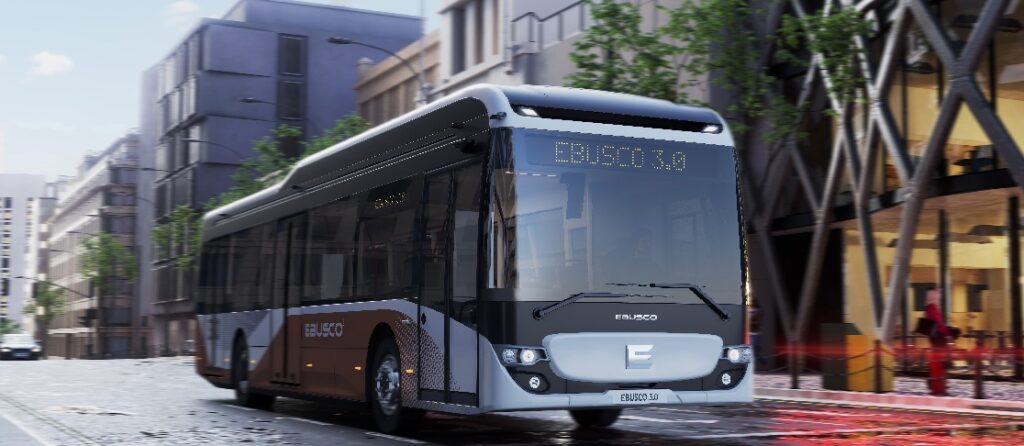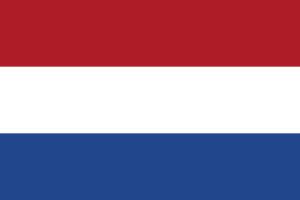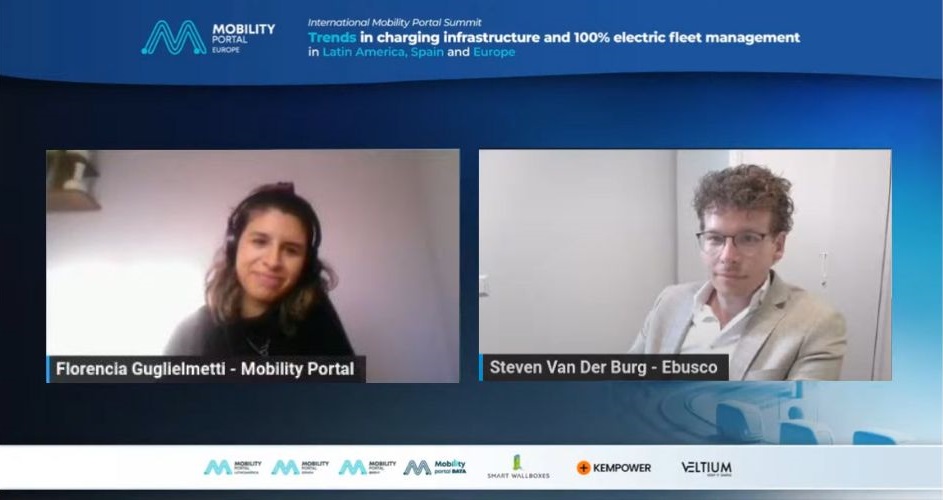Currently, the range of electric buses typically falls between approximately 250 and 300 kilometres (km).
However, Ebusco’s buses stand out for exceeding 500 km, reaching up to 700 km with their latest model, the Ebusco 3.0.
Can this efficiency be optimised?
“Absolutely, and it is what we strive for every day, aiming to improve and pioneer in terms of range,” asserts Steven van der Burg, Sales Director of the company, to Mobility Portal Europe.
Since its inception in 2012, Ebusco has been dedicated to the manufacture of electric buses, meaning it does not have a legacy of diesel or other types of fuel vehicles.
“Every engineer we have can focus entirely on the development of eBuses,” the expert affirms at the International Mobility Portal Summit.
As a result, the company is constantly researching to achieve the best outcomes in efficiency, development, and technology.
“We observe that the energy density of batteries is increasing, so we anticipate significant advances in the coming years,” he notes.
He adds: “The increase in energy density means greater capacity or lower weight, which ultimately results in greater range.”
This is because higher capacity allows for longer distances to be covered with less weight, resulting in lower consumption and superior range.
One of the European company’s objectives, as part of its roadmap, is to reduce the mass of its buses.
The insulation of the bus is also crucial for the efficiency of the vehicles’ heating, ventilation, and air conditioning (HVAC) systems.
“We observe that the composite material has a warmer temperature, meaning its insulation is much better than what we used to have with traditional steel cars,” details Steven van der Burg.
In this regard, he emphasises, “HVAC consumption is extremely important, and thanks to the heat pump solutions we currently have, this translates into lower consumption and greater range.”
All these measures will contribute to reducing the weight of the bus, which, in turn, will result in a decrease in its price and meet the industry’s demand to minimise the Total Cost of Ownership (TCO) as much as possible.
Consequently, from the outset, the company has aimed to achieve an empty weight for its electric vehicles that is even lower than that of diesel models.
The Ebusco 3.0, its latest release, exemplifies this.

It is a lightweight bus (weighing between 9,500 and 14,900 kilograms) with the lowest TCO on the market.
The main structure of the body is entirely composed of composite materials, which “reduces its weight by 4,000 kilograms” compared to a standard 12-metre electric urban vehicle.
Additionally, its batteries mounted in the floor free up space on the roof for customisations, such as the incorporation of solar panels.
All these features allow it to achieve a range of 700 km.
Currently, Ebusco is engaged in the development, production, and marketing of fully electric urban and regional buses and the associated ecosystem.
Its complete manufacturing process encompasses four phases: production of composite material parts, hull assembly, bus assembly, and pre-delivery inspection/IT integration for the customer.
To consolidate its position as a major player in the sector, the Netherlands-based company is working hard to increase production capacity to meet high demand in the future.
According to the Sales Director, the last five years have been extremely fast-paced and unique in terms of developments.
“I believe the next five years will also be interesting in this regard,” he asserts.
It is worth noting that the European Parliament has enacted measures for the electric bus sector, indicating that CO2 emissions from these vehicles must be reduced by 45 per cent for the period 2030-2034.
Meanwhile, a 65 per cent decline is required for 2035-2039, and a 90 per cent decrease from 2040 onwards.
New urban buses must lower their carbon dioxide emissions by 90 per cent by 2030 and become zero-emission vehicles by 2035.
In this context, Steven van der Burg highlights: “I am completely confident that the European targets can be met.”
He concludes: “The bus industry and the public transport market are perfectly aligned to achieve them.”
Here is Steven van der Burg’s contribution during the International Mobility Portal Summit:








